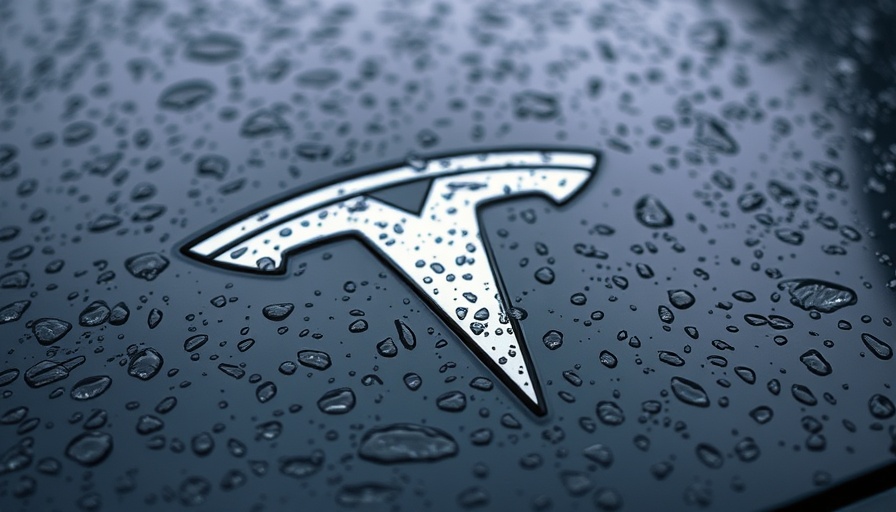
Tesla Faces Legal Crossroads Following Major Jury Verdict
Tesla, the electric vehicle giant, is at a pivotal point in its ongoing battle with the legal system, seeking to overturn a staggering $243 million verdict assigned to the company in a troubling case involving its Autopilot system. The recent courtroom drama centers around a tragic incident from 2019 in Florida, where a collision resulted in the death of 20-year-old Naibel Benavides Leon. Tesla maintains that they should not bear the weight of the outcome, claiming the driver involved was primarily responsible for the crash.
Understanding the Case: What Happened on That Fatal Night?
On that fateful night, George McGee was behind the wheel of a Tesla Model S, utilizing the vehicle's Autopilot feature, which is designed to assist but not fully replace driver control. As he approached a parked SUV, the crucial moments unfolded when neither the Autopilot nor McGee applied brakes. The jury's findings were that McGee was two-thirds at fault, and Tesla was placed at one-third blame.
The background of this case opens up discussions about the current capabilities of autonomous driving technology. Tesla’s Autopilot system, while advanced, does require driver oversight, a fact that has raised concerns regarding expectations for consumer safety and responsibility.
Tesla's Legal Strategies: Shifting Blame to Human Error
Tesla's response to the verdict has been categorical. In their court filing, the company’s attorneys labeled the jury's decision as contrary to Florida tort law and have sought a retrial or complete dismissal of the judgment. They argue McGee's actions—admitting to reaching for his phone during the crash—were recklessly negligent.
This case has highlighted the tension between technological advancement and accountability. While Tesla emphasizes the driver's fault, critics question how much responsibility manufacturers should hold if their systems enable unsafe conditions, regardless of driver behavior.
The Implications for Autonomous Vehicle Technology
This trial and others like it could have profound implications for the future of autonomous vehicle technology. Public perception of self-driving cars is shifting as more incidents occur, prompting discussions about legislation, safety standards, and the legal ramifications of technology used on public roads. If the jury's decision stands, it could deter innovation by increasing liability fears for car manufacturers.
Public Reaction and Industry Impact
Public interest in this case is palpable, reflecting broader societal questions around the safety of autonomous vehicles. Industry experts argue that cases like these could skew perceptions and foster hesitancy towards adopting new technologies.
Moreover, Tesla's decision to refuse a $60 million settlement from the victims just months before the verdict was handed down also sheds light on the company's strategic approach towards litigation. The refusal hints at a desire to set precedent rather than settle quietly, a move that could either solidify its technological standing or illustrate the risks of aggressive litigation.
What’s Next for Tesla and the Tech Industry?
As Tesla challenges the court's ruling, observers are eager to see how this will unfold. The outcome has the potential to influence not only Tesla's operations but also the broader landscape of technology and automotive safety standards. Will this lead to tighter regulations or perhaps spur revolutionary changes in how autonomous systems are built and deployed? Only time will tell as the trial progresses. For the tech community, understanding the confluence of technology and law has never been more critical.
During this period of uncertainty, the Tesla Autopilot case serves as a case study in innovation versus accountability. Staying informed on developments in the automotive technology sector, particularly regarding legal challenges, will be vital for consumers and industry stakeholders alike.
 Add Row
Add Row  Add
Add 



Write A Comment